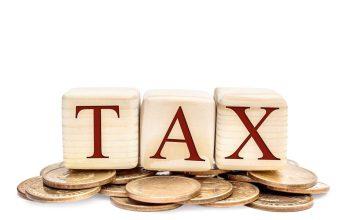Following the economical crisis, the Christian Aid UK Nigerian Programme said less than 30 percent of taxable citizen pay tax in the country.
This was revealed while a media engagement event organised by the Civil Society Legislative Advocacy Centre in partnership with Christian Aid UK Nigerian Programme, on the presentation of research on tax expenditures and debt management in Nigeria recently held in Lagos.
However, Victor Arokoyo, the Head of Programme, Christian Aid UK Nigerian Programme stated that if the government could raise more revenue, that would reduce the country’s debt.
He said, “We are partnering with CISLAC to see how we can galvanise the civil society to begin to talk about issues on tax expenditure and what would flow in terms of incentives to organised private sector. Maybe Nigerians are not so angry with the government because many people do not pay taxes; because less than 30 per cent of tax-payable citizens pay tax.
“So, instead of increasing tax for those that pay, the government should also widen the net of those that are not paying.”
Also speaking, Auwal Musa, the Executive Director of CISLAC stressed that Nigeria’s fiscal woes were significant revenue losses attributed to tax expenditures, encompassing incentives, exemptions, credits, and waivers.
He declared, “According to the 2021 Tax Expenditure Statement, revenue foregone due to tax expenditures accounted for approximately four per cent of GDP, equating to N6.8tn. This substantial leakage of revenue underscores the urgency of addressing tax expenditure and debt management issues with the utmost priority
“In response to these multifaceted challenges, the Civil Society Legislative Advocacy Centre and the Tax Justice and Governance Platform with support from Christian Aid Nigeria through an ongoing Debt Justice campaign, have undertaken several sensitisation engagements with civil society and media as well as policy engagements with relevant state actors, most of which have been informed by our research on tax expenditures and their implications on debt management and sustainability in Nigeria.
“We believe that governments at all levels need to acknowledge the critical importance of formulating, implementing and monitoring fiscal policies that are technically sound, widely acceptable and administratively feasible.
According to Musa, with a focus on tax expenditures, debt management, revenue mobilisation reforms, and the prioritisation of spending, the government should be committed to enacting measures that promote fiscal transparency, accountability, and sustainability.
He also noted that there was a pressing need for a comprehensive review of existing tax incentives to ensure their effectiveness, efficiency, and alignment with national development priorities.
He appealed, “The conduction of thorough assessments of existing tax incentives to identify areas of inefficiency, duplication, or inequity, engagement of stakeholders, including government agencies, private sector representatives, and civil society organisations, to solicit input and expertise in the reformulation of tax policies.
“In addition, the promotion of transparency and accountability in the administration of tax expenditures, including regular reporting and evaluation mechanisms to assess the impact of revenue-generating organisations and their economic outcomes.”
Musa emphasized that the government must demonstrate commitment to addressing Nigeria’s pressing fiscal challenges, encompassing tax expenditure, debt management, revenue mobilisation, and the prioritisation of spending.
“By harnessing the collective expertise and insights of all relevant stakeholders, we are confident that we will navigate the complexities of Nigeria’s fiscal landscape and chart a course towards sustainable economic growth and development with transparency, accountability, and fiscal prudence as guiding principles,” he enthused.
